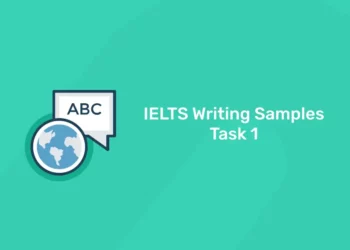Table of Contents
On October 26, 1966, UNESCO declared September 8 as International Literacy Day during the 14th session of its General Conference. Celebrated for the first time in 1967, this annual observance underscores the crucial role literacy plays in empowering individuals, strengthening communities, and advancing societies. As we approach International Literacy Day 2024, we’ll explore this year’s theme, highlight engaging activities, and challenge your knowledge with a fun quiz. Join us as we delve into the significance of literacy and how it transforms lives around the world.
International Literacy Day 2024 – Theme, Activities
The theme for International Literacy Day 2024, “Promoting Multilingual Education: Literacy for Mutual Understanding and Peace,” highlights the importance of embracing linguistic diversity to foster global harmony. By supporting multilingual education, we can enhance communication and understanding among different cultures, paving the way for peaceful coexistence. This year’s theme underscores how literacy in multiple languages can bridge gaps, promote mutual respect, and contribute to a more inclusive and united world.
International Literacy Day Activities 2024
1: Who was the first woman President of India?
Interactive Webinars and Online Discussions
Participate in virtual sessions with educators and experts who will explore the benefits of multilingual education, share innovative teaching methods, and discuss how multilingual literacy fosters global understanding.
Community Reading and Storytelling Events
Join local libraries and schools as they host readings and storytelling sessions in various languages, aiming to promote the joy of reading and celebrate linguistic diversity.
Workshops and Educational Seminars
Attend workshops and seminars that focus on multilingual education strategies, offering practical insights and best practices for teaching and learning in multiple languages.
Language Learning Competitions
Engage in school and community-based competitions that challenge participants to showcase their proficiency in multiple languages through essays, speeches, and quizzes.
Cultural Exhibitions and Showcases
Explore exhibitions featuring cultural artifacts, books, and media in different languages, designed to highlight and celebrate the richness of global linguistic diversity.
Literacy Awareness Campaigns
Support online and offline campaigns that raise awareness about the importance of multilingual literacy, sharing inspiring testimonials, success stories, and educational resources.
Collaborative Multilingual Projects
Get involved in community-driven projects that support multilingual literacy, such as translation services and the development of multilingual educational materials.
International Literacy Day Quiz 2024
- When was International Literacy Day first celebrated?
- a) 1965
- b) 1967
- c) 1970
- d) 1972
Answer: b) 1967
- What is the theme for International Literacy Day 2024?
- a) “Literacy and Sustainable Development”
- b) “Education for All: The Power of Reading”
- c) “Promoting Multilingual Education: Literacy for Mutual Understanding and Peace”
- d) “Empowering Youth through Literacy”
Answer: c) “Promoting Multilingual Education: Literacy for Mutual Understanding and Peace”
- Which organization established International Literacy Day?
- a) World Health Organization (WHO)
- b) United Nations Educational, Scientific and Cultural Organization (UNESCO)
- c) International Red Cross
- d) World Bank
Answer: b) United Nations Educational, Scientific and Cultural Organization (UNESCO)
- What date is International Literacy Day observed?
- a) August 19
- b) September 8
- c) October 5
- d) November 20
Answer: b) September 8
- What was the theme for International Literacy Day 2023?
- a) “Literacy for a Sustainable World”
- b) “Transforming Literacy Learning Spaces”
- c) “Literacy and Multilingualism”
- d) “The Power of Reading for Development”
Answer: b) “Transforming Literacy Learning Spaces”
- Which key issue is highlighted by the International Literacy Day theme focusing on multilingual education?
- a) Technological literacy
- b) Financial literacy
- c) Linguistic diversity and cross-cultural communication
- d) Environmental literacy
Answer: c) Linguistic diversity and cross-cultural communication
- How does multilingual education contribute to global understanding?
- a) By promoting economic growth
- b) By enhancing cultural exchange and reducing communication barriers
- c) By increasing technological proficiency
- d) By supporting competitive academic exams
Answer: b) By enhancing cultural exchange and reducing communication barriers
- Which notable figure is often associated with promoting literacy and education globally?
- a) Malala Yousafzai
- b) Nelson Mandela
- c) Mother Teresa
- d) Albert Einstein
Answer: a) Malala Yousafzai
International Literacy Day FAQs
1. Why is International Literacy Day celebrated?
Ans: Since 1967, International Literacy Day (ILD) on September 8th has been celebrated annually around the globe. The aim of ILD is to promote the importance of literacy as a matter of dignity and human rights and to advance the literacy agenda towards a more literate and sustainable society.
2. Why is literacy so important?
Ans: Helping someone to read and write properly or acquire the basic math skills that so many of us take for granted, will improve the future of everyone in society. Literacy is critical to economic development also as individual and community well-being. Our wealth is enhanced when learners have higher literacy levels.
3. What does Literacy Day mean?
Ans: September 8th was released as the International literacy day by UNESCO on 26 October 1966 at the 14th session of UNESCO’s General Conference. … Its aim is to spotlight the importance of literacy to individuals, communities, and societies. Celebrations happen in several countries.
4. How do you translate ‘International Literacy Day’ in other languages?
Ans: Spanish: Día Internacional de la Alfabetización
Chinanteco de San Felipe Usila (México): jm quieh a he ma jyi
Chinanteco de Sochiapam (México): Jmáɨ¹ quioh²¹ Jú¹jma²
Quechua (Bolivia): Yachana Jatun Punchay
Nyungar (Australia): Nidja Kedela Boolala Moort Bibbul Djinanginy (this day lots of people/family are looking at paper/bark)
Estonian: Rahvusvaheline Kirjaoskuse Päev














